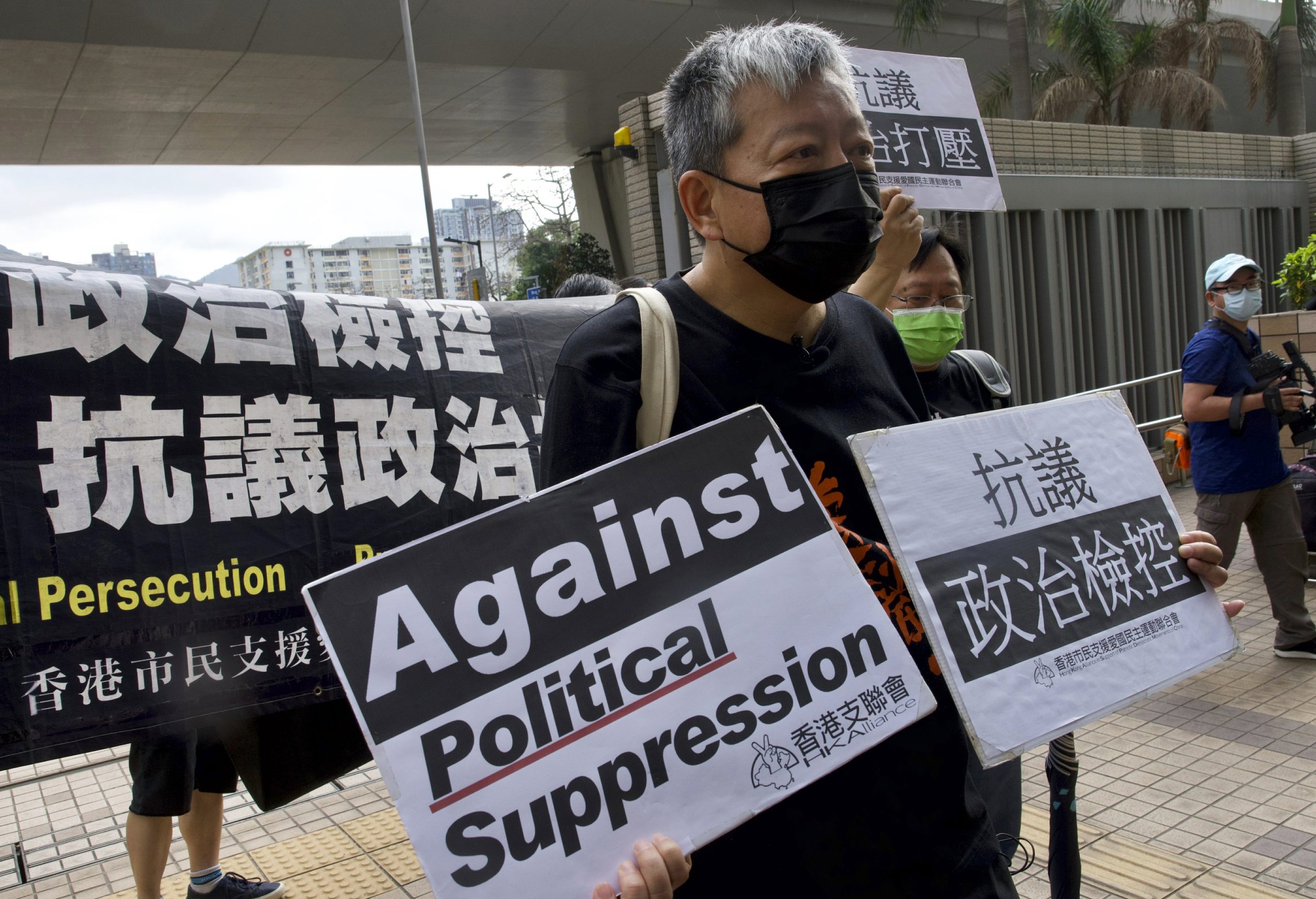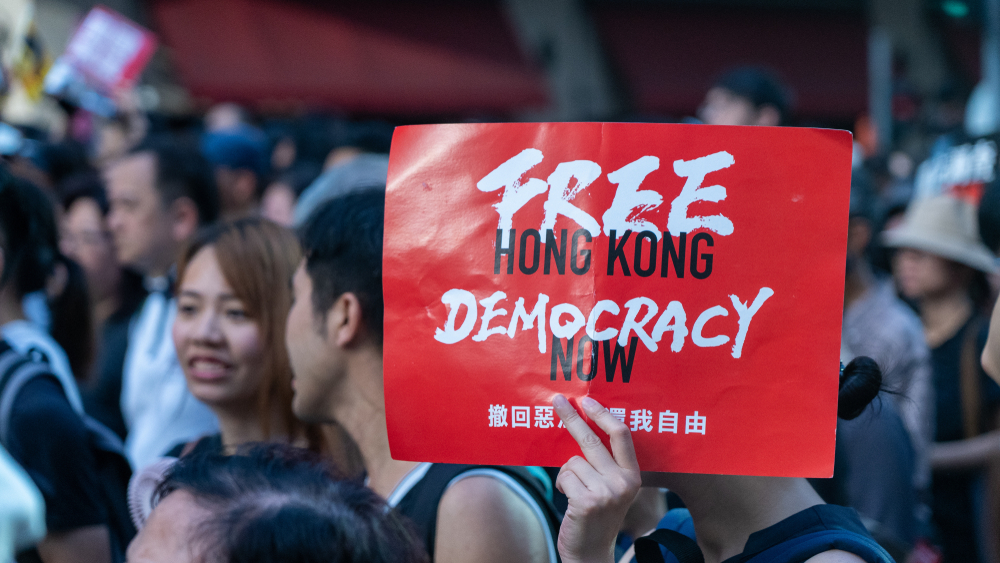
Hong Kong issued arrest warrants for several pro-democracy activists from other countries (Photo: AP News)
Overseas Democracy Advocates Targeted: Hong Kong’s National Security Law in Action
Recently, Hong Kong issued arrest warrants for several pro-democracy activists from other countries. This led the city’s government to promise to go after them nonstop. Simon Cheng, Frances Hui of the U.S.-based Committee for Freedom in Hong Kong, Joey Siu, a U.S. citizen and Hong Kong activist, and Johnny Fok and Tony Choi, two foreign YouTube hosts, are among the people being targeted.
Hong Kong’s national security police have started a global manhunt for these people and are giving a big HK$1 million reward for information that leads to their capture. To make the situation even worse, a government official said very clearly that people on the run “will be pursued for life unless they turn themselves in.” There is no doubt that the officials will do everything possible to bring these people to justice.
The government’s position shows that it is firmly committed to protecting national security. The people who are wanted are accused of continuing to do things that are seen as dangerous to national security. Anyone who has said anything bad about these acts has been called unfair and accused of having “double standards.”
The move to go after these overseas pro-democracy activists comes after arrest warrants were issued for eight well-known pro-democracy figures in July. The move has made people around the world more worried about China’s acts as a law enforcement agency in other countries. This is part of a larger pattern of transnational repression by the Chinese Communist Party.
READ ALSO: Chinese President Xi Jinping’s Visit Vietnam; Aims To Counter Growing US Influence
This development has not gone unnoticed in the international arena, with U.S. Congress members expressing calls for sanctions in response to such “long-arm” enforcement of Hong Kong’s national security law. The global pursuit of these activists by Hong Kong’s authorities is poised to further raise tensions between the city and the international community, particularly those advocating for democratic freedoms.
In the face of these developments, it has become apparent that the complex interplay between national security, human rights, and democracy is poised to continue as a focal point of international discourse and diplomatic tensions.
Hong Kong’s firm pledge to pursue overseas pro-democracy activists “to the end” marks a critical juncture in the ongoing struggles over political freedoms, sovereignty, and international dynamics in the region.
READ ALSO: China And US Presidents Stress Potential For Economic Cooperation
























